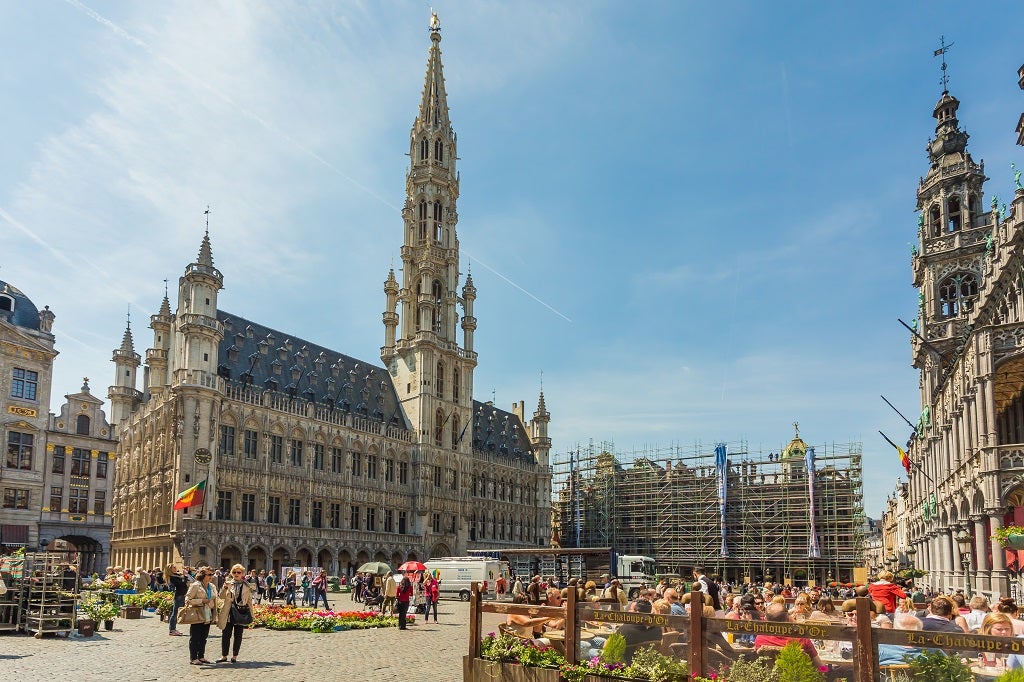Moving to Brussels
Brussels
-
Affordability 4 out of 5
-
Safety 4 out of 5
-
Healthcare 3 out of 5
-
Traffic Flow 1 out of 5
-
Property affordability 4 out of 5
-
Climate 5 out of 5
-
Environment quality 4 out of 5
It’s no secret why Brussels was made the capital city of the European Union. Lying just a short flight away from the major economic centres of London, Paris, Frankfurt and Amsterdam, it’s an incredibly convenient location for ministers to meet. It was also once the seat of the Holy Roman Empire and has an historic reputation as safe harbour for political refugees, among them Karl Marx and Victor Hugo.

The post war redevelopment of Brussels, while destroying much of architectural significance, has also left the city with the rather unfair reputation of being a concrete jungle – of little interest except to Eurocrats and their entourages who descend upon the city to formulate their arcane directives.
But Brussels still has much in the way of diversion for visitors and new residents alike. The Grand Place, with its gothic town hall and medieval guildhalls has been voted the most beautiful square in Europe and stands not far from an art deco basilica, the grandly neo-classical Bourse, the eclectic Palace of Justice and the bizarre, futurist Atomium.
Brussels diverse, multilingual population is made up of over 35% foreign nationals, who, along with the Belgian citizens, lend the city a cosmopolitan air and contribute a wide variety of cultural and culinary attractions from grand opera to moules frites.
Select the size of your move to get free quotes
Moving to Brussels from the UK
As an EU citizen a British national will have no trouble moving to and settling in Brussels. In addition to the lack of administrative hurdles you’ll also find that English is widely spoken in Brussels though familiarity with French and Dutch will of course make for a more integrated residency.
Brussels is a much smaller capital city than London – there are just over 1,800,000 inhabitants. The city is also fairly compact and well served by public transport. Excellent rail connections also make Brussels a great base for exploring western Europe or, with London just under two hours away via the Eurostar, for visiting the UK at weekends.
A downturn in house prices (in real terms) caused by a weakening economy has been the prevalent trend in Belgium in recent years. Prices in the capital region have not bucked this trend, falling by 1.29%, or -3.63% when adjusted for inflation, to €352,977 (£296K) in Q4 2012. Property transfer tax is levied at up to 12.5% in the Brussels region.
Renting a three bedroom apartment in the city centre costs around €1,500 (£1,200) per month.
Comparing Brussels vs London
Since both Brussels and London are a short distance from the English channel and are separated by less than a degree of latitude it is unsurprising that they have similar climates. Both Brussels’ summer average high temperatures (23 °C in July and August) and winter average low temperatures (1 °C in January and February) are close to London’s. Brussels is slightly wetter though (it sees 44% more annual precipitation, on average) and its slightly colder winters bring more snowfall.
Living costs are generally lower in Brussels than in London. Property prices and rents are lower, as are transport and utility costs. You may find yourself paying more for some groceries in Brussels though and restaurants can be more expensive too.
On average Bruxellois (or Brusselaar) report themselves as feeling slightly less safe than Londoners, receiving roughly equivalent standards of healthcare, putting up with more pollution but spending about half the time commuting.
Apart from its wide variety of architectural styles, Brussels’ chief cultural attractions are the museums which showcase the city’s long legacy of artistic excellence (cf. the Royal Museum of Fine Arts and the Belgian Comics Museum) and its theatres, among which La Monnaie is the most famous.







